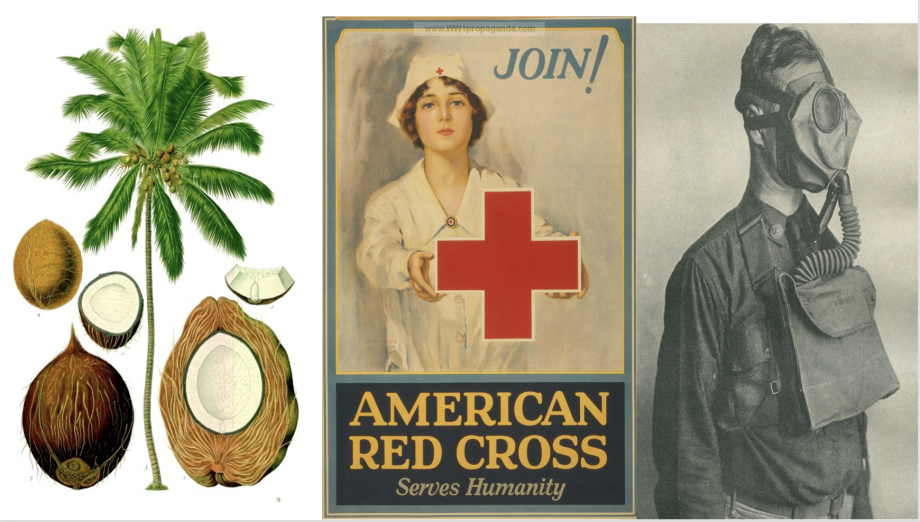Join us for this guest lecture with Gerard Fitzgerald

This paper is a work in progress chapter from an ongoing book project, The Nature of War: An Environmental History of Industrialization in the United States During World War I, 1898-1920. The paper examines stateside industrial food and industrial manufacturing systems, imperial agricultural networks, and American Red Cross food drives used by the United States Army Chemical Corps to find suitable carbon sources for the production of just under 4 million gas masks during the last year of World War I. In 1917, much to the surprise of the U.S. Army, the coconut, a tropical fruit found in large quantities within the Philippines, quite unexpectedly became a strategic resource for the gas mask filter program. The United States quickly marshaled its scientific, technological, and industrial capabilities to meet the wartime challenge. The procurement of carbon sources for gas mask production, in part through the exploitation of burgeoning imperial commodity chains, in conjunction with civilian industrial and volunteer efforts on the home front, were crucial for resource allocation and industrial manufacture in the final year of World War I. Research on the physics and chemistry of carbon sources were carried out as a joint project by the National Electric Lamp Works of the General Electric Company and the National Carbon Company, both located in Cleveland, Ohio under the auspices of the National Research Council. Also, larger industrial scale up and manufacturing facilities built in New York City, illustrate the ability of American industry to successfully pivot to meet complex technological wartime emergency timetables. Finally, this paper examines the military adoption of coconuts, industrial food waste, and food drive materials within a framework involving military-environmental history, large-scale technological projects driven by militarization, the changing “value” of raw materials during wartime, and the evolving scholarship on materiality within technological and environmental history.
Dr. Gerard J. Fitzgerald is an independent scholar in the United States who earned a Ph.D. in the history of technology, science, and medicine at Carnegie Mellon University as an NSF Cold War Science and Technology Studies Fellow while also studying the history of molecular biology and biochemistry in the Department of History and Philosophy of Science at the University of Pittsburgh. His current research focuses on the military-environmental, technological, and public health aspects of war and industrialization in the United States in last century.